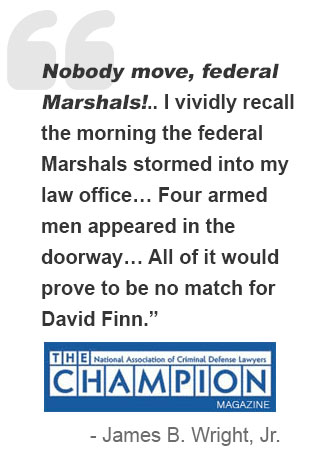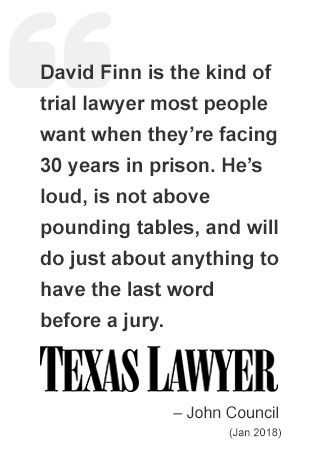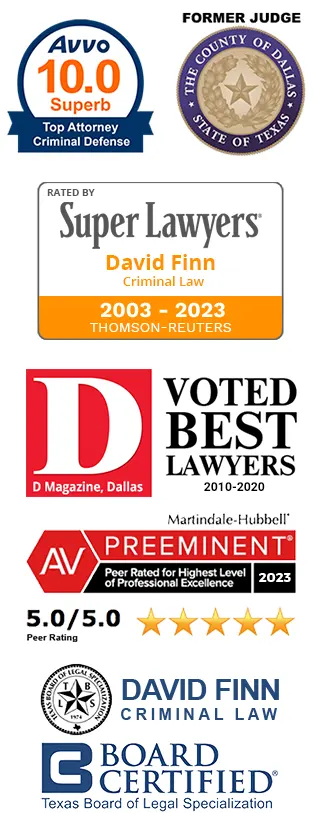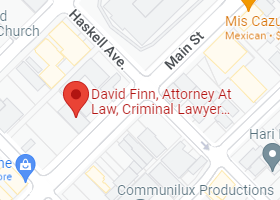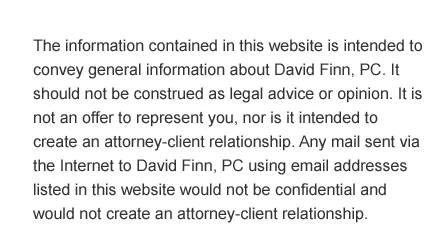


Library of Motions – Federal Discovery Letter
October 10, 2007
Via First-Class Mail-Return Receipt Requested
Jane Doe
Assistant United States Attorney
1100 Commerce Street-Third Floor
Dallas, Texas 75242
Re: United States v. Client Accused, No. 3:06-187-L
Dear Ms. Doe:
Pursuant to the United States Constitution, the laws of the United States, the Federal Rules of Criminal Procedure, the Federal Rules of Evidence, the United States Sentencing Guidelines and/or existing case law, Defendant, Client Accused, hereby requests the Government (1) to produce the following items, to the extent they may exist, for his inspection and use in connection with the preparation, and/or trial, and/or sentencing in the above–referenced case:
A. Any relevant written or recorded (2) statements (3) made or adopted by the Defendant, or copies thereof, within the possession, custody, or control of the Government, the existence of which is known, or by the exercise of due diligence may become known, to the Government; that portion of any written record containing the substance of any relevant oral statement made by the Defendant whether before or after arrest in response to interrogation by any person then known to the Defendant to be a Government agent; and recorded testimony of the Defendant before a grand jury which relates to the offense charged. You shall also disclose the substance of any other relevant oral statement made by the Defendant whether before or after arrest in response to interrogation by any person then known by the Defendant to be a Government agent if the Government intends to use the statement at trial. See Fed. R. Crim. Proc. 16(a)(1)(A) and (B). (4)
B. A copy of the Defendant’s prior criminal record, if any, as is within the possession, custody, or control of the Government, the existence of which is known, or by the exercise of due diligence may become known to the Government. See Fed. R. Crim. Proc. 16(a)(1)(D).
C. Any results or reports of physical or mental examinations, and of scientific tests or experiments, or copies thereof, which are within the possession, custody, or control of the Government, the existence of which is known, or by the exercise of due diligence may become known, to the Government, and which are related to the above referenced case or are intended for use by the Government as evidence at trial. See Fed. R. Crim. Proc. 16(a)(1)(F). You are also hereby specifically requested to preserve for testing by the Defendant any and all substances capable of being tested by scientific means whether or not such substances were tested by the Government.
D. A complete written summary of testimony to be presented by any Government witness called as an expert witness including the witness’ opinions, the basis and the reasons therefore, and his/her qualifications. See Fed. R. Crim. P. 16(a)(1)(G).
E. All evidence favorable to the Defendant which is material either to the issue of guilt or punishment in the above referenced case or which serves to impeach a Government witness who will testify at trial. See generally Brady v. Maryland, 373 U.S. 83 (1963); Giglio v. United States, 405 U.S. 150 (1972). This request includes, but is by no means limited to:
1. The existence of any witness known to the Government who is favorable to the defense together with any and all statements made or adopted by that witness (whether they be written, recorded or the substance of oral statements) within the custody or control of the Government, the existence of which is known, or by the exercise of due diligence may become known to the Government.
2. Any statements made or adopted by any individual (including co–defendants) (whether they be written, recorded or the substance of oral statements) within the custody or control of the Government, the existence of which is known, or by the exercise of due diligence may become known to the Government, which exculpate or do not mention the Defendant.
3. Any and all evidence showing any bias, narcotic habit, psychiatric treatment, lack of competence, lack of impartiality, or criminal record, on the part of any witness the Government intends to call to testify at trial in the above referenced case.
4. The results of any lie detector tests given to the Defendant or witnesses the Government intends to call to testify at trial in the above referenced case.
5. Any promises, rewards and inducements (financial or otherwise) offered (including a list of payments) or any threats of criminal prosecution made to any witness the Government intends to call to testify at trial in the above referenced case.
6. Presentence investigation reports, if any, relating to any witness the Government intends to call to testify at trial in the above–referenced case.
7. Any and all evidence about which the Government is now aware, or about which the Government may become aware by the exercise of due diligence that might indicate, however remotely, that another individual committed the offense(s) for which the Defendant now stands accused. This includes all evidence which the Government believes indicates that another individual committed the offense(s) in connection with the Defendant.
8. Names and addresses of eyewitnesses to the offense(s) for which the Defendant now stands accused whose identity is now known, or by the exercise of due diligence may become known to the Government.
9. Information regarding any indecisive, incomplete or hesitant identification of the Defendant by any witness to the offense(s) for which the Defendant now stands accused (regardless of whether the Government intends to call that witness to testify at trial).
10. Any and all information that tends to detract from the credibility or probative value of the testimony and/or evidence that the Government anticipates it will present at trial or sentencing in the above referenced case.
11. Any and all differences between information provided to the government by a cooperating witness and information provided to the government in a proffer made by that witness’s attorney. See Spicer v. Roxbury Correctional Institute, 194 F.3d 547 (4th Cir. 1999).
F. Copies of any statements made or adopted by any alleged co–conspirator, co–defendant or agent of the Defendant regardless of whether the Government intends to introduce these statements at trial. See United States v. Turoff, 701 F. Supp. 981 (E.D.N.Y. 1988).
G. The identify of any informant connected to the above referenced case who was a percipient witness to or participated in the alleged defense. See Roviaro v. United States, 353 U.S. 53 (1957). The Defendant also requests information regarding the present address of said informant; any prior criminal record of said informant; any bias, narcotic habit, psychiatric treatment, lack of competence, lack of credibility, lack of impartiality, or criminal record on the part of said informant; and any promises, rewards and inducements (financial or otherwise) offered or any threats of criminal prosecution made to said informant.
H. Any statements made or adopted by witnesses which the Government intends to call to testify at any hearing (including a sentencing hearing) connected with the above referenced case, or notes made by said witnesses within the possession, custody, or control of the Government, the existence of which is known, or by the exercise of due diligence may become known to the Government. See 18 U.S.C. Sec. 3500; Fed. R. Crim. Proc. 26.2. This includes any statements made by a government witness while he or she was incarcerated in the course of telephone conversations with government agents or others that were tape recorded by the institution in which the witness was incarcerated. See United States v. Ramirez, 174 F.3d 584 (5th Cir. 1999).
1. The government is directed to preserve all rough notes of witness interviews. United States v. Harris, 543 F.2d 1247 (9th Cir. 1976).
I. The general nature of any and all evidence the Government intends to introduce at trial pursuant to Fed. R. Evid. 404(b). See Fed. R. Evid. 404(b). The Defendant further requests a statement of the Government’s theory of admissibility with respect to all such evidence.
J. Facts and circumstances of the offense and offense characteristics that are relevant to the application of the Sentencing Guidelines. See U.S.S.G. § 6B1.2, Commentary.
Please note that the Defendant specifically requests all items he is entitled to review as provided by the United States Constitution, the laws of the United States, the Federal Rules of Criminal Procedure, the Federal Rules of Evidence, the United States Sentencing Guidelines and/or existing case law. If those sources require production of items not specifically requested herein, a request for these items is now specifically made. Furthermore, this request is a continuing request; if the Government discovers additional evidence or material responsive to any of the above Requests subsequent to the Government’s initial production, the Government shall promptly and without delay provide the Defendant with the additional evidence or material. See Fed. R. Crim. Proc. 16(c).
In the event that the Government fails to produce all, or any part, of the evidence or materials herein requested, the Defendant reserves the right to oppose the introduction of such evidence or materials at any hearing in the above referenced case and/or move for dismissal of the indictment against the Defendant. See Fed. R. Crim. Proc. 16(d)(2).
Your anticipated cooperation is appreciated.
Very truly yours,
David M. Finn
cc: Client
(1) The term “Government” as used throughout this Request includes all branches of the Government, all levels of the Government and all agencies within each branch and level of Government.
(2) The term “recorded” as used throughout this Request includes both audio and visual recordings.
(3) The term “statements” as used throughout this Request includes any form of assertive conduct and is, therefore, not limited to verbal statements.
(4) This Request is also intended to cover the substance of Defendant’s response to Miranda warnings if such warnings were given. See United States v. McElroy, 697 F.2d 459 (2d Cir. 1982).
Right click on the link above and select “save target as…” to save the document to your computer.
Phone Numbers
Office: (214) 538-6629

